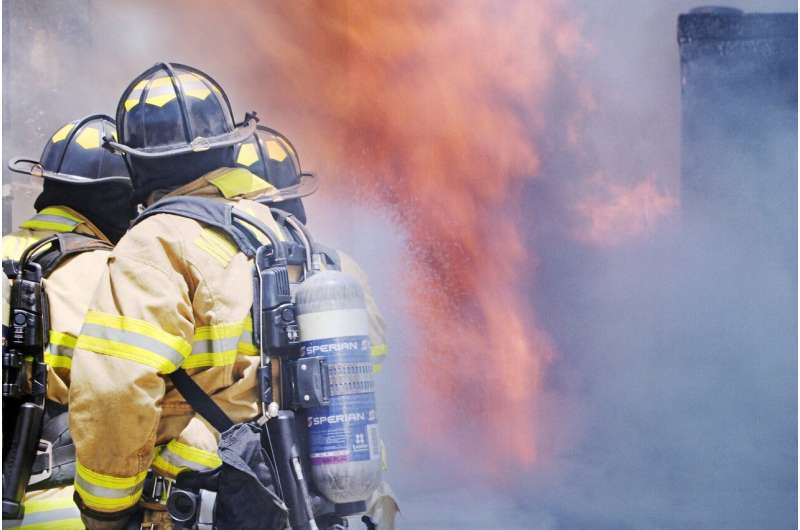This article has been reviewed according to Science X's editorial process and policies. Editors have highlighted the following attributes while ensuring the content's credibility:
fact-checked
proofread
First responders are people, too: Study shows how dehumanization leads to burnout

From medical professionals who were on the frontline of the COVID-19 pandemic to firefighters rescuing victims of the Maui wildfires, first responders are often hailed as heroes. But many of them experience the public's elevated perceptions of them as a form of dehumanization, which can lead to burnout, according to a new study in the Journal of Employment Counseling.
First responders experience a phenomenon called "meta-dehumanization," or the belief that one's group is denied humanity, researchers reported. The study, involving 211 first responders, found a link between meta-dehumanization and burnout, which can lead to absenteeism, job turnover and impaired judgment. Participating emergency workers who reported that they felt dehumanized scored high on measures of burnout regardless of the amount of time they spent in the profession.
Dehumanization is defined as the denial of some aspect of an individual's or group's humanity. In many cases, it implies a person is less than human—an attitude that can be applied to certain types of first responders such as police. But it can also describe a group with superhuman traits, said Kari M. Mika-Lude, Ph.D., lead author on the study and a counselor educator at Marshall University in West Virginia.
Counselors working with first responders must understand the culture of vigilance, toughness and tireless motivation that characterizes those professions. This culture can create a form of organizational dehumanization, Mika-Lude added.
"The most critical point overall is that helpers are human," she said.
"Looking back on the pandemic, 'health care heroes' and 'heroes of the pandemic' campaigns were everywhere, which were intended to show reverence and appreciation in a time of fear and hardship. But it's also important for us to consider the underlying message of such slogans: 'Superheroes don't need rest. Superheroes don't need help. Superheroes are there to protect and save the rest of us.' The superhero stereotype unintentionally deprives the first responder of humanness and a need for care."
Mika-Lude and her colleagues suspected that the burnout first responders feel because of meta-dehumanization would correlate with the amount of time spent in the profession. They used social media to recruit their participants, who included emergency medical technicians (EMTs), law enforcement officers, firefighters, hospital emergency personnel and 911 dispatchers in the U.S. and Canada. The participants completed questionnaires designed to measure their feelings of being dehumanized and burned out.
Surprisingly, the first responders who felt dehumanized were most likely to experience burnout regardless of the time spent in the profession. Firefighters experienced far less burnout than the other professionals, which may stem from the comparatively positive stereotypes that people attribute to them, the researchers reported.
Mika-Lude was inspired to research the topic based on the experience of her husband, who left his post as a volunteer firefighter/EMT in the late 1990s because of posttraumatic stress. He had arrived first on scene to a single-vehicle traffic fatality and discovered that the victim was a member of his own family.
"Years later, with some encouragement, he finally agreed to pursue treatment and was able to find solace," she said. "Over time, he was able to reenter the first responder workforce as a full-time EMT, and together we have advocated with first-responder organizations across West Virginia to develop inclusive policies and protocols that destigmatize mental health concerns, humanize the workforce, promote help-seeking and cultivate trauma-sensitive workplaces."
Counselors who work with first responders should educate themselves about the professional culture and reject the superhero stereotypes to avoid furthering clients' feelings of being dehumanized, the authors wrote.
"There are opportunities for advocacy and ongoing research to help others understand that first responders are human beings with human limitations, faults and emotions," Mika-Lude said.
More information: Kari M. Mika‐Lude et al, Under fire: Meta‐dehumanization and burnout among first responders, Journal of Employment Counseling (2023). DOI: 10.1002/joec.12208


















